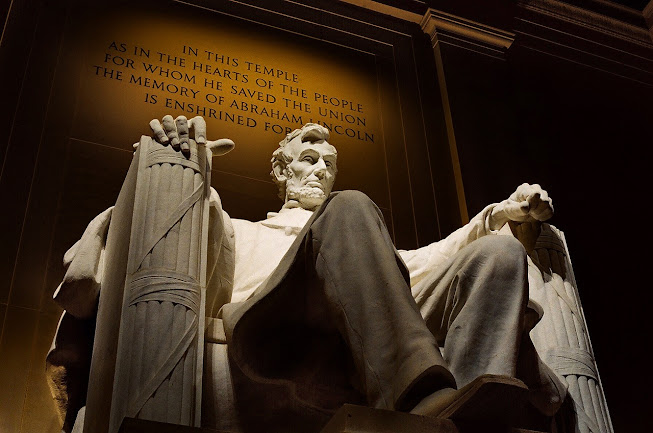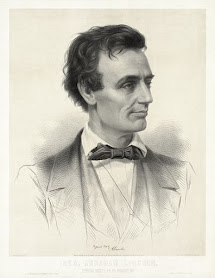Review by Bill Doughty––
This “found haiku” comes from Abraham Lincoln’s Lyceum Address in Springfield, Illinois on January 27, 1838:
Reason must furnish
all the materials for
our future support
The speech is quoted in one of the four forewords in the massive “The January 6th Report: Findings from the Select Committee to Investigate the January 6th Attack on the United States Capitol” (December 2022, U.S. Government Publishing Office).
In Schiff’s words, Lincoln spoke about internal threats “not the threat of foreign invasion, even though the War of 1812 was only two decades past. It was the danger from within that a young Lincoln identified as our gravest threat.”
Lincoln is also quoted in the second foreword to the book by former Speaker of the House Nancy Pelosi: “Let us always honor our oath to, as Abraham Lincoln said, ‘nobly save or meanly lose, the last best hope of earth.’ So help us God.”
In the third foreword to the book, chairman of the committee Rep. Bernie Thompson says he was advised to remove his lapel pin so he wouldn’t be identified and targeted by attackers who threatened to kill legislators and the vice president. He chose not to remove his pin and thereby showed support for the defenders of the Capitol and against the attackers.
“We can never surrender to democracy’s enemies,” Thompson writes. “We can never allow America to be defined by forces of division and hatred. We can never go backward in the progress we have made through the sacrifice and dedication of true patriots. We can never and will never relent in our pursuit of a more perfect union, with liberty and justice for all Americans.”
Former Representative Liz Cheney, vice chair of the committee, opens the report’s fourth and final foreword with a story about Abraham Lincoln issuing the first call for volunteers for the Union Army in April 1861 and how her great-great grandfather, Samuel Fletcher Cheney signed up for the 21st Ohio Volunteer Infantry.
Cheney, a Republican like Lincoln, writes: “I have found myself thinking often, especially since January 6th, of my great-great grandfather, and all those in every generation who have sacrificed so much for (quoting OVI’s regimental historian Silas Canfield) “the unity of our Nation and the perpetuity of our institutions.”
Cheney says, “At the heart of our republic is the guarantee of the peaceful transfer of power.”
Cheney notes how General George Washington resigned his commission and handed control of the Continental Army back to Congress. (When Washington’s term as president ended, he rejected calls by some to remain in office as dictator.)
This bipartisan report features a comprehensive Executive Summary that encapsulates the main thrust of the investigation and its findings in the report. Within the summary is a list of witnesses, nearly five dozen of whom are registered Republicans. Only one witness, the Secretary of State of Michigan, is identified as a Democrat.
Most of the report, itself, is a “Narrative” in 8 chapters that explores: the Big Lie of a stolen election, the scheme of fake electors, the plan to block certification of the election by the vice president, the invitation of then-President Trump to come to D.C. and march to the Capitol to “fight like hell,” an examination of the role of far right extremists in the insurrection, and “187 minutes of dereliction” in which the commander in chief chose not to call off the rioters nor order DOD to send the national guard to defend the Senate and House of Representatives.
The long “narrative” is excellent writing: True historical storytelling in the tradition of David McCullough; careful citing of facts and sources in the vein of Craig Symonds; and drama and suspense –– especially during the actual lead-up and breaching of the Capitol –– in the style of Tom Clancy. As with the Executive Summary, there are extensive endnotes throughout.
Military readers will be interested in reading two of the appendices: Government Agency Preparation for and Response to January 6th, and DC National Guard Preparation for and Response to January 6th.
The report cites what one witness called “decision paralysis” and “decision avoidance.” Army leaders were “sensitive to the sight of troops near the site of the congressional certification of electoral votes.” The report examines “fears of politicizing the military in an anti-democratic manner” in the wake of the heavy handed National Guard confrontation with protesters in the summer of 2020, which included low-flying military helicopters. The Guard was deployed and used chemical agents to clear Lafayette Square for Trump’s photo-op holding up a Bible at St. John’s Church.
While the report has been criticized by some progressives for not examining the motivation and role of Christian Nationalism specifically, the report does mention QAnon Shaman Jacob “Angeli” Chansley’s leading of a “conspiracy-laden prayer session” at the Senate dais after shouting “Mike Pence is a f—ing traitor” at the spot where Pence had been presiding. Chansley left a note that read: “It’s only a matter of time. Justice is coming.”
The committee thoroughly investigated the actions of other QAnon conspiracy believers and white nationalists. Chapter 6, “Be There, Will Be Wild,” examines extremist militia groups such as The Proud Boys, The Oath Keepers, and The Three Percenters.”
More than 1,000 rioters have been indicted since the insurrection. Many remain in jail and many more have been stained with a criminal record. While some have had their lives ruined, others, like Chansley, who has already been released from prison, are cashing in on their fame and hardening their support with the far right. Some key leaders and planners of the attack are facing much longer prison terms.
Since publication of The January 6th Report, the most serious convictions have occurred among military veterans who in many ways led the attack. On May 4, five members of the Proud Boys were convicted of various charges, including four members convicted of seditious conspiracy.
 Last week, on May 25, the Department of Justice announced: “Elmer Stewart Rhodes III, the founder and leader of the Oath Keepers, and Kelly Meggs, the leader of the Florida chapter of the organization, were sentenced today for seditious conspiracy and other charges related to the breach of the U.S. Capitol on Jan. 6, 2021.”
Last week, on May 25, the Department of Justice announced: “Elmer Stewart Rhodes III, the founder and leader of the Oath Keepers, and Kelly Meggs, the leader of the Florida chapter of the organization, were sentenced today for seditious conspiracy and other charges related to the breach of the U.S. Capitol on Jan. 6, 2021.”
Rhodes, an Army veteran from Texas, was sentenced to 18 years in prison, “the longest sentence, to date, related to the January 6 attack on the Capitol.” Fellow militia leader Meggs received a sentence of 12 years. “This is the first time a court has found that a defendant’s conduct related to the January 6 attack was tantamount to terrorism warranting an upward departure under the sentencing guidelines,” according to DOJ.
“Today’s sentences reflect the grave threat the actions of these defendants posed to our democratic institutions,” said Attorney General Merrick B. Garland. “The United States proved at trial that the Oath Keepers plotted for months to violently disrupt the peaceful transfer of power from one administration to the next. The Justice Department will continue to do everything in our power to hold accountable those criminally responsible for the January 6th attack on our democracy.”
It’s becoming clear that there is a litmus test for who will be elected as the next President and commander in chief of the military next year: Voters will choose between those who believe in accountability for those who stormed the Capitol and those who promise pardons for the seditionists and rioters such as the Proud Boys and Oath Keepers.
 |
| Rep. Adam Schiff |
Representative Schiff said this about the Constitution and the oath:
“Even the most brilliant Constitution cannot protect us if the people sworn to uphold it do not give meaning to their oath of office, if that oath is not informed by ideas of right and wrong, and if people are unwilling to accept the basic truth of things. None of it will be enough.
But if we allow ourselves to be guided by facts –– not faction –– if we choose our representatives based on their allegiance to the law and the Constitution, then we should have every confidence that our proud legacy of self-government will go on.”
That’s the accountability, respect for truth and justice, and faith in the rule of law Lincoln spoke about in the Lyceum Address, “The Perpetuation of Our Political Institutions.”
Lincoln believed in an informed electorate, honest leaders, and support for the Constitution and rule of law, which he called “the political religion of our nation.”
with other pillars,
hewn from the solid quarry
of sober reason
Pillars of logic and reason found in the Constitution support our democracy.
There's more “found haiku” from Abe Lincoln and others on Navy Reads.






No comments:
Post a Comment